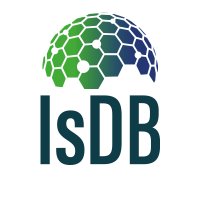The IsDB is pleased to announce calls for scholarship applications for the academic year 2022/2023.
The Islamic Development Bank funds and implements its scholarship programmes as part of its overall efforts to develop the human resources of its member countries and those of the Muslim communities in non-member countries.
- Undergraduate
- Master’s
- PhD and Post-Doctoral Research Programme
- IsDB-ISFD for Technical Vocational Education & Training (TVET) for 21 Least Developed Member Countries (LDMCs): Afghanistan, Bangladesh, Benin, Burkina Faso, Chad, Comoros, Djibouti, The Gambia, Guinea, Guinea-Bissau, Mali, Mauritania, Mozambique, Niger, Senegal, Sierra Leone, Somali, Sudan, Togo, Uganda and Yemen
- IsDB-ISFD Bachelor studies for 21 LDMCs as mentioned in No. 4 above
- IsDB-The World Academy of Science (TWAS) Joint Programme for Capacity Building and Technology Transfer
Objectives: The Programmes are important parts of the developmental initiatives led by the Bank since 1983 to foster technology and knowledge sharing among its member countries and Muslim communities in non-member countries. They are designed to attract talented male and female students and in order to build the right competencies required with a special focus on sustainability sciences to empower communities and to assist them in achieving their national and global development plans including the Sustainable Development Goals (SDGs). The motto is to develop the students/researchers as Good Citizens & Competent Professionals (GCCPs).
Concept:
The IsDB Scholarship Programme is more than just a scholarship programme in the traditional sense of a straight financial assistance to the outstanding and qualified students. It is also a tool for the improvement of the socio-economic conditions of the Member Countries and Muslim communities.It is basically a scholarship programme and a development programme at the same time, since the scholarship is given as an interest-free-loan (Qard Hasan) to the students and as a grant to their communities /countries to which they belong.
The students are required to fulfil the obligations detailed, under each programme, after graduation and gainful employment. Besides, the students are also required to take part in the development of their communities/countries, through their respective professions. The repaid fund will be used to provide scholarships to other students from the same community/country to complement the IsDB Programme and to ensure its continuity in the long run, while the community development services rendered by the students and graduates will contribute to the overall development of the community/country.

